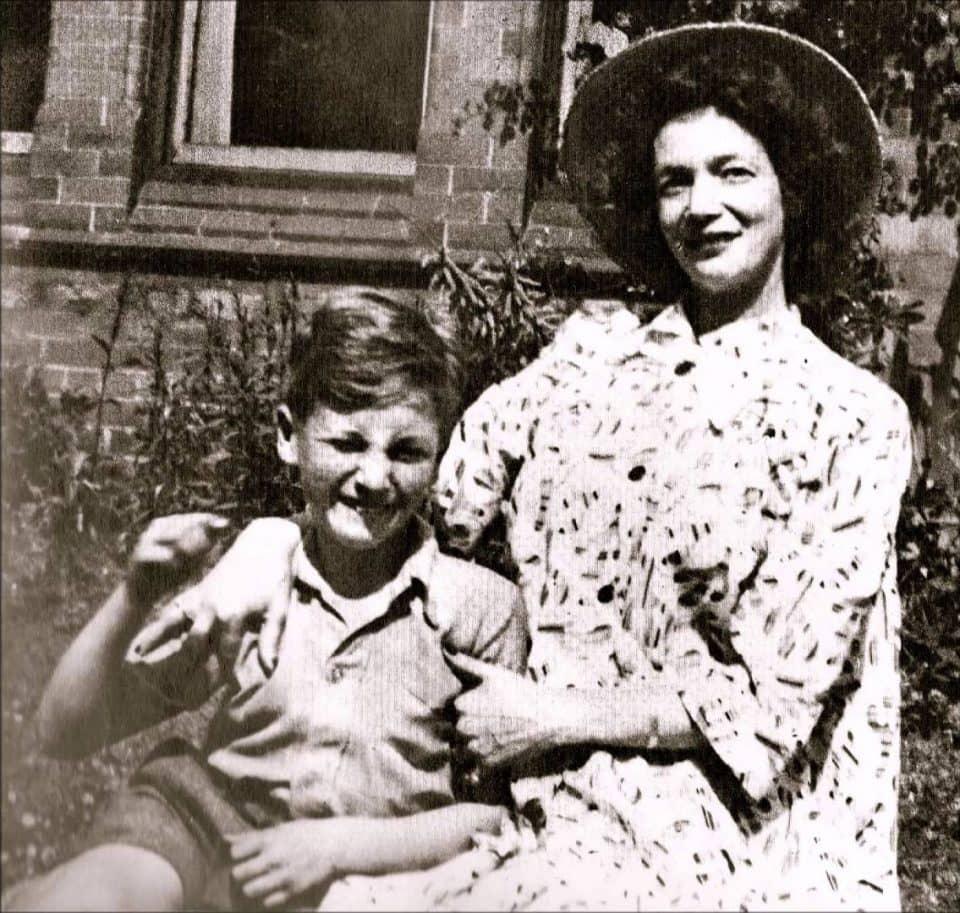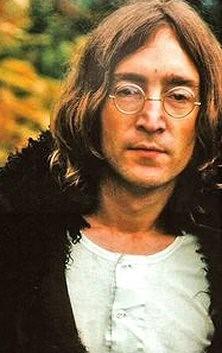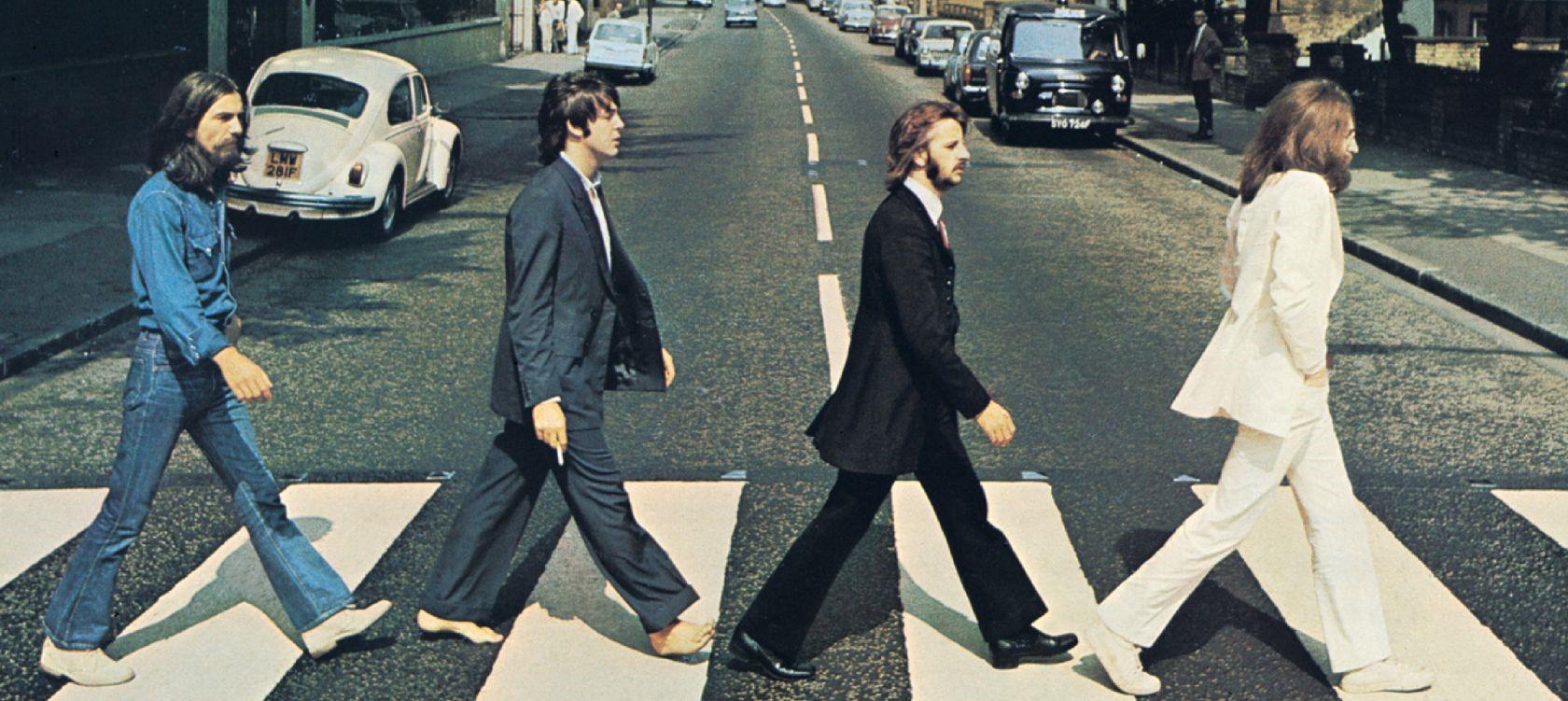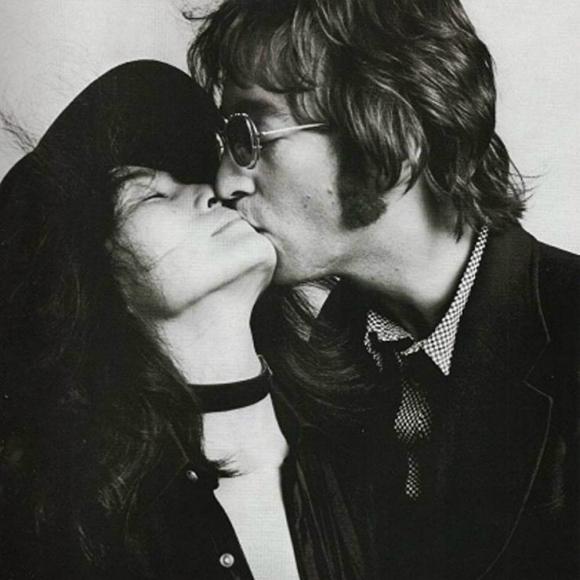
7 minute read
“A cuppa with the stars”John Lennon
from Luciérnagas 1
by Ana Cerezo
Presenter- Welcome back to our radio programme “A cuppa with the stars”. Today we want to get our most open-minded listeners’ attention. If you, yes you, dear listener, are one of those who believe that there’s a soul charged with unbounded energy throbbing into everybody’s body; if you’re sure that one day this soul will find its wayout to run wild across the universe, then you’reupforanunforgettableexperience.
Believe me; we’ve gone to great lengths to get our guest to accept our invitation, but at longlastandafterrepeatedlyknockingonthe doors of Heaven, we’ve been granted this interview.
Advertisement
Reddish hair, slightly squinted eyes, prominentnose…Don’tanyofthesephysical traits ring a bell? What if I say that he was borninLiverpool?Oh,comeon,don’ttellme youdon’tstillknowwhoI’mspeakingabout!
JohnLennon,isityou?Canyouhearme’
John- Yeah, perfectly, we’re face to face althoughyoucan’tseeme.
P- Welcome back to Earth. So glad you’re here.Howwasyourjourney?
J- Oh, it just took me a twinkling of a human eye to get here. I suppose energies run fast, don’tthey?
P- Landing back in the world of the living must have brought back lots of lost memories.
J- Yes, right now I’m trying to manage a whirlpoolofpent-upemotions.
P- You were born9th October 1940 at Liverpool Maternity Hospital. Your full name is John Winston Lennon…

J- That’s right. I was named John after my grandpa and Winston after British Prime Minister Winston Churchill.
P- Your childhood was tinged with separateness and tragedy. How do you rememberthoseearlyyears?
J- My father, Fred, was a merchant seaman. He used to spend long periods of time away from home. His visits were few and far between. I suppose one day he simply got fedupandstoppedcomingbackhome.Iwas justfour.
P- Youmeanhewalkedoutonhisfamilyjust likethat?
J- He did. My mother, Julia, was in a real state, unable to care for me as well as she should and gave me to her sister, auntie Mimi,whowaslivingnearby.
P- Did you miss not having your mother around?Youwereonlyalittleboy.
J- Aunt Mimi was strict but very loving. Mum used to visit regularly and brought presents with her. Maybe, she wanted to make up for having failed me. Presents might have been a way to assuage her guilty conscience. As youcansee,Iwasaspoiled-rottenchild.
P- Didn’tyoueverseeyourfatheragain?
J- Yes. Twenty years later, he came seeking for me, rummaging in the past to reinstate himself into my life. Regrettably, forgiveness nevercameintobeing.
J- Paul and I struck up a very special friendship.We were like brothers. He was an extremely talented kid. In those years we didn’t use to antagonize each other. On the contrary, we shared all our projects and ideas.
P- Eventually,yourauntMimiwasabletoget youacceptedintotheLiverpoolCollegeofArt byshowingthemsomeofyourdrawings…
J- Yes, but I didn’t enjoy being dictated to. I wasafreespiritasfarasartwasconcerned. I didn’t show the slightest interest in conventional art being totally hell bent on Rock & Roll. I was a great fan of Elvis PresleyandBuddyHolly.
P- And you dropped out. Anyway, it wasn`t a fruitless experience since you met Cynthia Powellthere…
P- Soon after your 16th birthday, there would be a tragic event that scarred you forever: your mother, Julia, died after being struck by alorry…
J- Thatwasbyfarthesaddestmemoryinmy teen years. Because fickle though she was, we loved each other tenderly. Very few people know that it was her who introduced me to this lifelong interest in music by teachingmehowtoplaythebanjo.
P- You met Paul McCartney at this emotionally charged moment in your life. He had also lost his mother to a terrible illness and this awful event has been said to have contributed to cementing your friendship. Is thistrue?
J- Cynthia was also a student. When I met her, she struck me as very talented and funny. We started dating and we got married in 1962, when she got pregnant with my first son,Julian.
P- Nonetheless, your love story was doomed as you had to share her with your other passion:music.
J- Paul, Ringo, George and I were exerting ourselves to forge our way through this difficult world. In 1962, after having given it a shot to different names, The Beatles were born.
P- You were given your first opportunity in yourhometown.Thefourofyouhavealways beendeeplyproudofyourroots.
J- Yeah.WestartedplayinginTheCavern,a pub in Liverpool that was always full to the gunnelswithoddballslikeus.
P- Isuppose itwasn’t easyto makeallthese peoplevibratewithyouravant-gardemusic.
J- No, certainly it wasn’t a cinch. We had to put up with lots of raised eyebrows until we weregiventhefirstroundsofapplause.
P- Butyoumadeit.Eventually,you’dbecome aworld-widephenomenon.Girlswereliterally fallingoverthemselvestogetatyou.Howdid you manage to cope with this unexpected and, at the same time, so longed for situation?
J- Everything was mind-boggling. Overwhelmed though we were, we were feeling on such a high… Imagine, four bogstandard boys from Liverpool lifted to Heaven’sineachoftheirconcerts.
P- And little by little, the camaraderie and friendshipstartedtodeteriorate…
J- Too true. We had committed ourselves to making it work. Paul and I were the songwriters and the four of us were vocalists and multi instrumentalists, too. George had even travelled to India to learn to play the sitar, something that was unheard-of in western music at the time. What I mean by this is that we had worked hard to blend all the ingredients leading to success. But fame wasplayingeviltricksonus.Wehad already got on our high horse, trying to vie individuallyfor the fans’ attention. In the end, we clashed over pettythings.We were going downhill.Itwasunstoppable.
P- And soon after your album Abbey Road was released, you discovered that there was nopassioninworkingtogetherandsplitupin 1970tostartyoursolocareers.
By the way, the cover of that last album with the four of you marching on a pedestrian crossing continues being on the limelight after all these years, attracting thousands of peopleeveryyear.

J- The photo was taken outside the EMI Studios in Abbey Road, in the outskirts of London.Wewantedtotakeadvantageofthis zebra crossing for the front cover of our album, which, as you can see, was also named after the street “Abbey Road”..
Throughoutalltheseyears,it’sbeenverylike tourists to swing by to get pictured in this location.Thefactthatwearestillonpeople’s mindsisvery,veryrewarding.
P- I understand that the day when you reached the decision to break up must have been a very sad one, but, anyway, there will always remain your songs. Personally, I’ve always loved Penny Lane. I’ve heard there’s astorybehindit.Whatisit?
J- Penny Lane is a street in Liverpool where Paul and I used to meet to take the bus into town.Webothwantedtodedicateitasongto mention the sights and characters that we remembered.
P-Let it be, Hey Jude, I want to hold your hand, The fool on the hill, There comes the sun, Allyouneedislove…There’resomany extraordinary songs, but none of them anywherenearasbeautifulas Yesterday.
J-Yes.Lotsofversionshavepoppedupsince wefirstsangit.
P-The upheaval of your artistic life didn’t escape your personal life either. You missed outonseeingyoursonJuliangrowingup.Do youregretnothavingbeenthere?
J- ObviouslyIdo.Ishouldhavetriedmybest to make it up for him by being a good father, butIwasn’t.
P- On November 9th 1966, you visited an art exhibition of Yoko On’s in the Indica Art Gallery in London and you got impressed by hertalent.
J- Yes, it was awesome. I held backtospeakto her and I found everythingabout that woman mesmerizing, utterly spellbinding. I suppose this put paid to my marriage to Cynthia. We got divorcedandImarriedYokoin1969.
P- Many Beatles’ fans regarded Yoko as domineeringandunapproachable,puttingthe blame on herfor the band’s break-up. Is that true?

J- Yoko was also a singer and songwriter, a multi talented artist who had a big influence on me from the beginning.. With her I found my happiness. Shouldn’t that be enough reasontoadoreher?
P- In1971,barelyayearafterthesplitofThe Beatles, you bought a white piano for your wife Yoko Ono’s birthday and soon afterwards you wrote the iconic song Imagine. This is an anti-religious, antinationalistic, anti-capitalist song, a moving peaceanthemthatturns50thissameyear.
J- At that time, Yoko and I were big on the pacifist movement. We could be seen in gatherings that systematically denounced injustice, war, poverty and oppression. Imagine wasbornoutoftheseideals.
Anyway, even though we wanted to raise awareness on these matters by using our worldwide fame, I suppose we didn’t find it easy to renounce to our wasteful extravagance,what,infact,paidlipserviceto ourfindingfaultingovernmentsandwealth.
Assuming my own defects is very humbling. Shame I was too stuck-up to do it as a living being.
P- How did you come up with the idea to write Imagine?Whatinspiredyou?
J- Imagine was heavily inspired by my wife, who used thiswordinmanyof herartworks. Despite this, I took all the credit for writing this song. Maybe I was a bit too selfish and macho.
P- You probably know that in 2017, Yoko Onowasrecognizedasco-writerofthesong. Youmustbegladtohearthat…
J- Yeah, very. Imagine was a massive hit throughout theworldandYokocontributedto makingitpossible.
P- In 1975, your son Sean is born, and you stop travelling to dedicate him and your wife moretime.
J- That’s right but, after some time, Yoko noticed my increasing dissatisfaction and encouraged me to make music again. That’s how my last album, Double fantasy, was born.
P- It’sinthisalbumthatwefindthisgorgeous song, Woman, a tribute to Yoko, where you showyourendlessdevotiontoher.
J- I think I couldn’t take it any longer. I really needed everyone to know how much I loved her.
P- But unfortunately, your love story had a sharp, unpredicted end, when, very soon afterturning40,youweremurderedandyour untimely death would leave us all orphan of one of the greatest singers and songwriters ofalltimes.
J- I remember it vividly. Mark David Chapman, a fan from Honolulu, had shaken hands with me when I had autographed his newly-purchasedcopyof Doublefantasy that samemorning.
Apparently, he had remained near my house formostoftheday.
Soon after midnight, Yoko and I returned by limousine to our apartment building in New York. When I got out of the car, Chapman calledoutmynamefromthedarkness.When I turned round, he pulled out a gun and shot me.
Doctors worked frantically to revive me, they massagedmyheartbuttonoavail.
When my body was on the throes of death, myspiritcouldhearoneoftheBeatlessongs playinginthehospital: Allmyloving
P- Areyoukidding?
J- No,I’mnot.
P- Youwouldhaveturned80latelastyear.If you had lived into old age, what would you liketobedoing?Whatwouldyouliketohave achieved?
J- Most likely, I’d be spending my retirement days painting in my beachfront house on the
English coast. I’d continue writing music. In all likelihood, I’d have turned into an eccentric, grumpy, old musician. I’d be fortunate enough to have my wife and two sons’ love and enjoy my grandchildren’s presence.IknowthatSeanandJuliangeton very well, they really have a brotherly relationship..
What pains me most is to have died without shaking hands with Paul McCartney. Soon before my death, we had met and we were doing our best to bury the hatchet, but we werestilltrying.
So, if I could be granted the wish to continue livingonEarth,IwoulddefinitelywantPaulto beanimportantpartinmylife.
P- Dear Lennon, our interview is about to finish but I’ve got one last question for you. What’seternitylike?
J- Oh, my dear. I’m not supposed to spill the beans.You’reboundtofindoutonyourown, but don’t make haste to go to Heavens. You’vegotsomanythingstodohere!
TheonlythingIcantellyouisthateverybody pays their dues for the wrongs they’ve done whilethey’realive.
P- Then,I’llcontinueworkingonthatchimera youstartedwithyoursong Imagine.Frommy privileged situation and my comfortable life, I’ll fight against injustice and discrimination in anattempttomake thisworldalittlebetter.
You’ll always be in our hearts, John Lennon. GoodflightbacktoHeavens.
Alumnos 2BN









